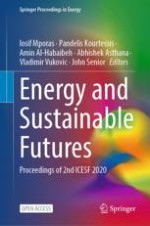30.1 Introduction
30.2 Fuel Poverty and Health
Excess winter deaths | ||||
|---|---|---|---|---|
Sex | Age | 2015/2016 | 2016/2017 | 2017/2018 |
Male | 0–64 | 1,730 | 1,350 | 2,700 |
65–74 | 1,820 | 1,790 | 3,200 | |
75–84 | 3,370 | 4,440 | 6,700 | |
85+ | 4,290 | 6,810 | 9,300 | |
All ages | 11,200 | 14,390 | 21,900 | |
Female | 0–64 | 1,200 | 890 | 1,500 |
65–74 | 1,520 | 1,850 | 2,500 | |
75–84 | 3,520 | 4,690 | 6,900 | |
85+ | 7,140 | 12,720 | 17,300 | |
All ages | 13,380 | 20,140 | 28,100 | |
Total | 24,580 | 34,530 | 28,100 |
